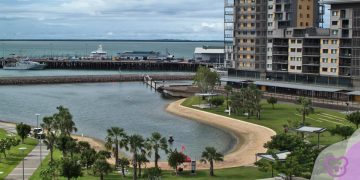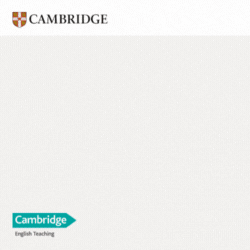Springing to life in 2014, the New Colombo Plan (NCP) has established a formidable presence in the ecosystem of Australian international education.
Across a decade NCP has outlived and outshone other attempts to fuse foreign affairs policy and education initiatives. It extends Australia’s deep relationships into the Indo-Pacific through young Australians studying and living in the region.
It’s a short, yet rich and colourful history; with a bright future. Globally recognised, NCP is as an exemplar in learning abroad education strategy, government and industry engagement and the art of scholarship in diplomacy.
A pillar of international engagement, NCP’s legitimacy was established in 2013 through a robust consultative process, a Menzies Research Centre steering committee giving life to a policy guidance document and the appointment of a DFAT Reference Group to provide strategic oversight to the 2014 rollout and subsequent expansion.
Its path is now firmly cemented, through consecutive passes through senate estimates, increases in funding, survival through the covid era, amplification across the business community… and of course the golden panacea of bipartisan support.
In August, Senator The Hon Penny Wong announced, “we want more students to spend more time in the region; we want more students to learn languages; and we want to ensure that short-term programs deliver real benefits for students”, tasking Assistant Minster The Hon Tim Watts MP with ensuring the NCP is “fit for purpose and builds the capability of our people”.
And so, a quick and considered response it was… the appointment of an External Advisory Group (EAG), chaired by the Assistant Minister is a both a stellar and enlightened commitment to NCP 2.0 and our future in the region.
The EAG will shape the next phase of the NCP as it lifts Australia’s Indo-Pacific capabilities and literacy. Not surprisingly, NCP has been an enabler of the national surge in learning abroad, contributed to driving almost 50% of the Australian learning experience toward the Indo-Pacific in partnership with complementary mechanism such as OS-HELP.
Featuring perspectives from the higher education sector, industry, and NCP alumni, the EAG membership includes:
Ms Grace Corcoran, Diplomacy Program Lead, Asialink
Prof Nicholas Farrelly, Pro Vice Chancellor, University of Tasmania
Prof Jessica Gallagher, Deputy Vice-Chancellor, Adelaide University
The Hon Phil Honeywood, CEO, International Education Association of Australia
Ms Renae Lattey, Chief Executive Partner, King and Wood Mallesons
Mr Ashok Mysore, Member, Victoria Trade and Investment Advisory Board
Mr Luke Sheehy, CEO, Universities Australia
Mr Peter Varghese AO, Chancellor, University of Queensland
Ms Elena Williams (IEAA-AF), ANU Indonesia Institute
Ms Hayley Winchcombe, Engagement Manager, Mandala Partners
Building on 10 years of success and over 50,000 talented NCP alumni with Indo-Pacific connections and experiences, the EAG will draw on this national talent pool. NCP as a key political lever will continue to support Australia’s return as the global leader, where almost 1 in 4 students undertook a learning abroad experience pre covid as part of their undergraduate study.
The Assistant Foreign Minister Tim Watts chaired the first meeting of the New Colombo Plan EAG on Friday 4th October.
The raft of expertise and diverse intersections with international education of the EAG will supercharge the NCP, building and locking in future stewardship of the program nationally and regionally. An exciting and eclectic group, the Koala particularly notes the inclusion of;
Hayley Winchcombe the inaugural 2018 NCP ASEAN Fellow to Singapore who went on to co-found the ASEAN-Australia Strategic Youth Partnership and hold the role of Board Chair. Now Engagement Manager at the Mandala consulting group, Ms Winchcombe has not simply inspired the future generation of young Australians, she had led and corralled them, building connectivity across the diverse ASEAN membership. Sitting on the Board of the Australia-ASEAN Council she embodies the future and influence of young regional leaders.
Elena Williams (IEAA-AF) fluent in Bahasa Indonesian and a board member with DFAT’s Australia-Indonesia Institute, supports the Asia Education Foundation as an Indonesian language ambassador. Ms Williams serves as a mentor and advisor with a range of organisations, including: The Australian Consortium for ‘In-Country’ Indonesian Studies (ACICIS), where she was previously the in-country resident director based in Yogyakarta. With a PhD in the wings that embraces NCP, she brings a contemporary view to the design and deliver of learning abroad. Ms Williams crafting of educational relationship across complex political and education jurisdictions is an asset.
Peter Varghese AO, is serving his second term as Chancellor, University of Queensland. Mr Varghese served as Secretary of the Department of Foreign Affairs and Trade during the design and implementation phase of the NCP. Currently Chair of the Asialink Council he was also the author of a comprehensive India Economic Strategy to 2035 commissioned by the Australian Prime Minister. Mr Varghese previously served as High Commissioner to India, High Commissioner to Malaysia, Director-General of Australia’s peak intelligence agency the Office of National Assessments, and Senior Advisor (International) to the Prime Minister.
Professor Nicholas Farrelly, Pro Vice Chancellor, University of Tasmania will uplift program profile and regional impact through an intimate regional knowledge. In early 2024 he completed the co-authored report on Australia’s engagement with Southeast Asia titled, “Comprehensive Strategic Partners: ASEAN and Australia after the first 50 years”. Establishing the ANU Myanmar Research Centre in 2015 and as Director of that centre Professor Farrelly also served as Deputy Director of the Coral Bell School of Asia Pacific Affairs at ANU. He brings an intricate awareness of the complex intersection of educational systems of the NCP countries that partner with Australian universities.
So, with NCP an embedded part of the education and diplomacy infrastructure, the considered views of the EAG will put more student ambassadors into the region for longer and uplift the capability of the young Australian talent pool ready and able to accelerate Indo-Pacific engagement.
The NCP supports Australia’s broad foreign policy architecture, on display through a raft of Free Trade Agreements and relationship upgrades, including Australia’s Southeast Asia Economic Strategy to 2040. With the Assistant Ministers speech to 2024 NCP Scholars noting… “Asia capability is more important than ever, it’s the foundation of all of the tools of influence that we are relying on the shape the dynamics that are changing our region”… the EAG will foster Australian regional ties and enable a future workforce with a higher degree of Asia literacy and experience.
The EAG will have access to the well-established NCP Alumni Representative group, the DFAT Alumni Consultation Group, previous business champions and internship providers across the region that make up a powerful group of industry advocates. It’s a diverse and powerful group driving this educational pillar forward.
Having supported 50,000 alumni and 41 Australian universities to connect with over 2,500 institutions that deepen Australians’ links to the Indo-Pacific NCP is a critical piece of national infrastructure. There are a now a number of consultations underway across a variety of specific interest groups such as industry and academia.
Ten years on from its creation, the EAG will co-design the next phase of NCP, ensuring it delivers benefits for participants and broadens Australia’s national understanding of our region. Importantly it has been flagged that a broader public consultation will enable universities and our learning abroad sector leaders to provide insights to inform future iterations of this world class initiative.
Read the full announcement here.

















